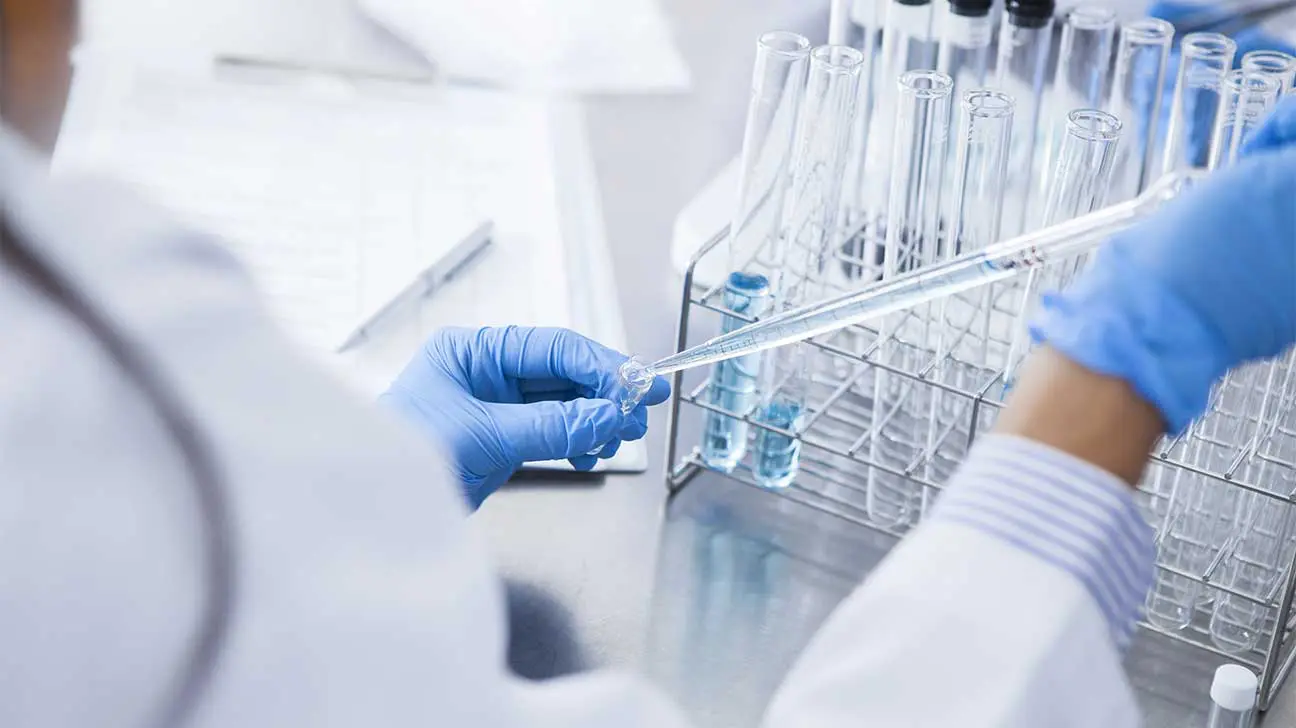
Millions of people in the United States receive prescriptions for opioid drugs like hydrocodone each year. Due to their addictive potential, the use of these opioids is sometimes monitored by healthcare providers.
Hydrocodone use can be identified in:
- urine samples
- blood samples
- oral fluid samples
- hair samples
Blood and saliva tests can detect hydrocodone use the fastest.
Urine screens, the most common testing method, can detect hydrocodone for up to four days after the last dose. Hair tests can detect opioid use for the longest amount of time—up to 90 days.
What Is Hydrocodone?
Hydrocodone is an opiate drug that comes from the opium poppy plant. It is commonly prescribed as a standalone or combination product to treat moderate to severe pain.
Common brand names for hydrocodone include:
- Vicodin (with acetaminophen)
- Lortab (with acetaminophen)
- Lorcet (with acetaminophen)
- Norco (with acetaminophen)
- Hysingla ER (extended release)
- Zohydro ER (extended release)
Although hydrocodone has medical use as a pain reliever, it can also be very addictive.
Like other prescription opioids, hydrocodone is classified as a schedule II controlled substance. This means it has a high potential for abuse and addiction.
Hydrocodone Detection Times
The detection time for hydrocodone, or the amount of time the drug remains detectable in the body, can depend on the type of testing method and other personal factors.
Hydrocodone detection times by testing method:
- urine tests: up to four days
- blood tests: up to 24 hours
- saliva tests: up to 48 hours (two days)
- hair tests: up to 90 days
How Long Does Hydrocodone Stay In Urine?
Urine screenings are the most common way to test for drug use. Urine samples can contain detectable traces of hydrocodone for up to four days, on average.
Learn more about how long hydrocodone can be detected in your urine
How Long Does Hydrocodone Stay In Blood?
Hydrocodone can be detected in the blood for up to 24 hours. This type of test offers the shortest detection window.
Learn more about how long hydrocodone can be detected in your blood
How Long Does Hydrocodone Stay In Saliva?
Saliva tests, which are sometimes used after motor vehicle accidents, can detect opiates for up to 48 hours after last use.
How Long Does Hydrocodone Stay In Hair?
Hair tests can detect traces of hydrocodone in hair follicles for up to 90 days, or three months, after the last use. This can be useful for identifying chronic opioid use or abuse.
Learn more about how long hydrocodone can be detected in your hair
Factors That Can Affect Drug Detection Times
Detection windows for hydrocodone drug testing can vary according to certain biological, genetic, and personal factors.
Factors that can affect drug detection times include:
- Frequency of use: Regular use of hydrocodone can lead to increased tolerance and drug dependence. This can result in a longer detection window.
- Amount of drug used: Taking higher doses of hydrocodone can result in longer detection windows on average.
- Overall health: Certain health conditions, including impaired liver or kidney function, can affect how long it takes for the body to get rid of drugs like hydrocodone.
- Metabolism: Having a slow metabolism can cause a longer detection window, on average.
- Body composition: Weight, height, and body fat can affect drug metabolism.
- Polydrug use: Taking multiple drugs (e.g. benzodiazepines and opioids) can affect the amount of time it takes for the body to fully process hydrocodone.
How To Get Hydrocodone Out Of Your System
If you’re concerned about testing positive for hydrocodone use, the only way to get a negative result is to allow the body to get rid of the hydrocodone naturally. This takes time.
Becoming dependent on hydrocodone, or addicted to the drug, can complicate this.
Hydrocodone dependence may cause withdrawal symptoms with reduced or stopped drug use. These symptoms, which can be mild to severe in nature, can be difficult to manage alone.
Hydrocodone Detox
If you’ve taken hydrocodone for a long time, the safest way to get it out of your system is to seek professional care through a drug detox program.
Within a detox program, healthcare providers can offer medical supervision and provide treatment for withdrawal.
If you’re detoxing from hydrocodone due to struggles with substance abuse, detox professionals may also refer you to additional treatment for opioid abuse or addiction.
Treatment For Hydrocodone Abuse And Addiction
Millions of people in the United States misuse prescription drugs like hydrocodone each year.
To overcome drug misuse, most people require some form of inpatient drug rehab or outpatient treatment.
Treatment for hydrocodone abuse may involve:
- medically supervised detox
- medications for opioid use disorder (e.g. methadone, buprenorphine, naltrexone)
- behavioral therapies
- group counseling
Not every case of substance abuse is the same. By calling our helpline, we can help you determine which type of treatment program may be best suited to the needs of yourself or a loved one.
It’s never too soon or too late to seek help for addiction. Call our helpline today to learn more about hydrocodone or to find effective opioid addiction treatment options near you.
Addiction Resource aims to provide only the most current, accurate information in regards to addiction and addiction treatment, which means we only reference the most credible sources available.
These include peer-reviewed journals, government entities and academic institutions, and leaders in addiction healthcare and advocacy. Learn more about how we safeguard our content by viewing our editorial policy.
- HealthPartners—Interpretation of Opiate Drug Screenings
https://www.healthpartners.com/ucm/groups/public/@hp/@public/@ime/@content/documents/documents/cntrb_031044.pdf - Redwood Toxicology Laboratory—Laboratory Testing Reference Guide
https://supremecourt.nebraska.gov/sites/default/files/Programs/CIP/events/redwood/LAB_Reference_Guide.pdf - U.S. National Library of Medicine: MedlinePlus—Hydrocodone
https://medlineplus.gov/druginfo/meds/a614045.html


